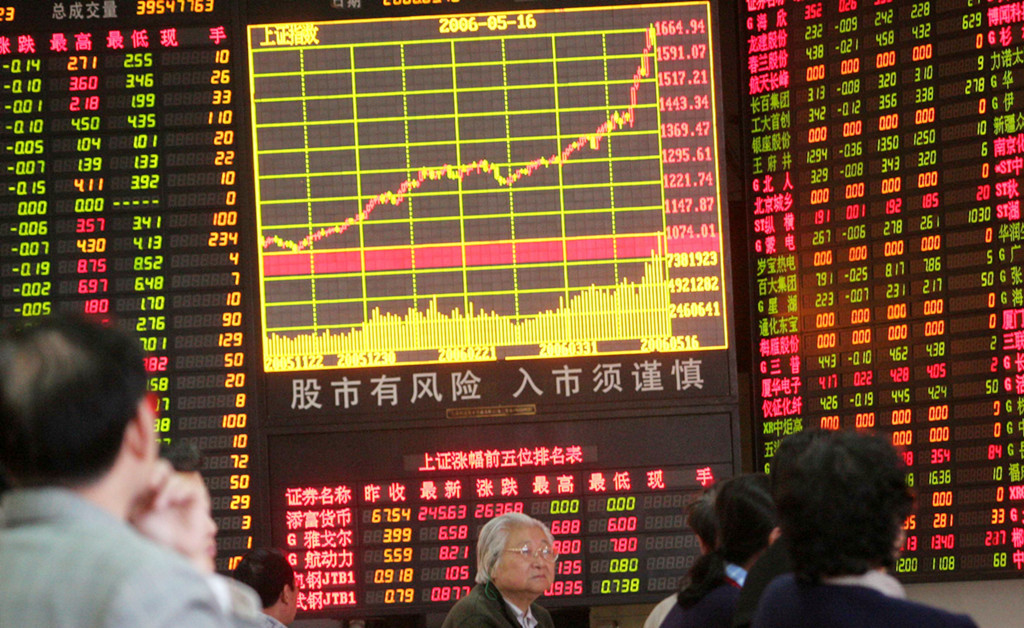In his first update of 2023, Ravenscroft chief investment officer Kevin Boscher looks east to China
As we approach the end of the first quarter, the promising stock market rally has been brought to an abrupt end by the collapse and subsequent bail out of Silicon Valley Bank (SVB) in the US and further problems with Credit Suisse. Equities have unsurprisingly reacted negatively to the news, whilst government bonds have rallied hard as the markets now start to price in the prospect of a Fed pivot together with the end of interest rate hikes and Quantitative Tightening. Clearly, we need to see how this situation evolves over the next few days and weeks and the hope is that the US authorities have acted promptly and decisively to restore confidence in the banking sector and reduced the risk of contagion. I will comment more on this in the near future. In the meantime, I will focus on the reopening of China for this article, which I believe is a very positive development for the global economy and financial markets and will cover the global macro and market outlook in my next review, due at the end of this month.
A consumer led recovery in China

China’s economic recovery will be led by the consumer, who after being stuck at home for some time, will be desperate to get out and spend some of the huge pool of savings that have been accumulated during the extended lockdown period. Whilst it will obviously take time for this to show up in the numbers since the initial wave of infections needs to pass, it is evident that consumer confidence is picking up materially whilst travel and retail sales are growing up at a swift pace.
Property sales and related spending are a large contributor to consumption and the sector appears to be stabilising after its collapse last year on the back of financially troubled developers suspending work on many construction projects, which resulted in buyers pulling out of transactions and reluctant to put down money for deposits. The Government will be keen to support the consumer and the property sector given its importance to the economy and social cohesion but will also be vigilant against inflating another property bubble or aggravating the income and wealth inequality problem. Hence, policies rolled out thus far should enable developers to resume building and encourage purchasers to commit with more policy support forthcoming, if required. With lots of cash available, low mortgage rates and confidence that developers will complete projects, buyers should return to the market and boost consumption.
Exports will likely drag on growth in the initial stages of the recovery, since exports will weaken as domestic demand strengthens and the renminbi appreciates. A slower global economy will also negatively impact exports, whilst the potential for higher energy prices as Chinese demand recovers will add to import pressures. However, any weakness in export-focused sectors will be partially offset by the boost to China’s industrial sector from recovering consumption and housing construction. In addition, China should benefit later in the year from an improving global growth outlook as inflationary pressures ease and central banks shift to more accommodative policies. Similarly, business investment will remain subdued for some time given the weaker export outlook, fragile sentiment and confidence indicators and the focus of policy stimulus on consumption rather than infrastructure spend.
Good news for the global economy

China’s reopening is well under way and the early signs are of a robust initial recovery. This is good news for the global economy and markets. China has recently announced a growth target of around 5% for this year, which is fairly conservative given that its target for last year was 5.5% and its actual growth was closer to 3%. The Government’s priority is the expansion of domestic demand, notably consumption, which is no surprise given it sees its role as protecting jobs and income and addressing the structural income and wealth inequality issue. It is also keen to slow a rising debt-to-GDP ratio, rebalance the economy away from being export and construction led to more consumer-driven, whilst at the same time making itself less dependent on imports (especially from the US) in strategically important areas such as technology, food, energy and commodities. Given these objectives, the monetary and fiscal measures introduced so far have been modest but more targeted stimulus is likely to follow over the next few months for consumption, property and business investment.
Unlike the US and Europe, China does not have an inflation problem, in fact it has been struggling with strong disinflationary/deflationary pressures over the past couple of years. As growth recovers, this may generate upward pressure on prices, but inflation is unlikely to become a major problem for China for several reasons. The Chinese economy is operating substantially below potential, and unemployment is still hovering near historically high levels, hence there should not be the same pressures of excess demand seen in the US or Europe, nor should wage growth be an issue. Also, China’s supply-chain has remained intact throughout the pandemic. Hence, there are no bottle-neck constraints that could drive up prices when demand recovers. Finally, the Government’s modest growth target and conservative policy stimulus to-date will help keep inflation in check. China has plenty of room for further monetary and fiscal support if needed, and we will likely see new support measures announced later in the year.
The Chinese reopening is a positive factor for the global economy and equity prices. A stronger Chinese economy will boost global trade, suck in imports from overseas, help offset some of the weaker growth from the US and Europe and help drive up corporate profitability for multinationals that derive profits from the Chinese market. Some investors have raised concerns that a stronger China will cause commodity and energy prices to surge, which in turn will slow the pace of disinflation in developed economies and lead to higher rates and bond yields. I think this is unlikely in the near term, since recovering energy demand from China will be partially offset by reduced demand from a slowing US and Europe. Also, as previously mentioned, the Chinese economy is operating well below its full capacity, and it will take some time for any inflationary pressures to emerge. I expect oil and energy prices to move higher over the longer term as the structural problem of inadequate supply in the energy sector re-asserts itself, but this will likely take some time to come through.
China’s reopening is bullish for commodities and markets too

An upturn in the Chinese business cycle is also positive for commodities generally and Emerging Markets. China is, by some margin, the largest consumer of raw materials and its demand drives global commodity prices. Most EM countries are either commodity producers, are closely integrated in China’s supply chains or are major exporters to China. In addition, a pick-up in global trade and eventually global economic activity will be bullish for EM exports and growth. Historically, China’s business cycles have led EM equity earnings. Chinese equities will remain the most direct beneficiary of the post-pandemic boom. After a multi-year period of decline and under-performance relative to global stocks, they look cheap in absolute and relative terms, and will benefit from accelerating earnings and more accommodative policy. After rallying hard in the early part of the year, Chinese equities have sold off again since the end of January. There are likely several reasons for this including an escalation in US-China tensions, a realisation that the economic rebound will be gradual and the fact that the Fed rhetoric has taken a hawkish tune resulting in higher rate expectations and a stronger dollar. I fully expect China’s equity rally to resume in the not-too-distant future and think that Chinese stocks will deliver strong performance over the next year or two.
Despite a more optimistic outlook for China and its equity markets, foreign investors remain reluctant to invest directly into the country due to concerns around its leadership, increasing tensions with the US, the potential for government policy to suddenly destroy value in a sector or business or restrict capital flows and a lack of confidence in the long-term growth outlook.
However, there are a number of interesting ways to take advantage of the investment opportunities that a recovering China may offer. As already mentioned, Emerging Markets will be major beneficiaries of a stronger China whilst also offering relatively attractive valuations. In addition, an eventual Fed pivot will lead to a weaker dollar, which is also positive for EM, and will enable many EM countries to follow suit and ease monetary policy. Again, as mentioned earlier, commodity prices, including energy, would be expected to rise as the Chinese recovery gains strength. In addition, companies and countries who export into China and are positively linked with the Chinese business cycle will do well. This includes European companies, who export capital goods and equipment, Asian and US companies in the chip and technology sectors as well as multinationals geared to the Chinese consumer.
China’s reopening is a major positive for the global economy and markets this year and we will be looking to take advantage of this in our portfolios through a variety of investment opportunities, many of which are aligned with our long-term and irrefutable themes.


